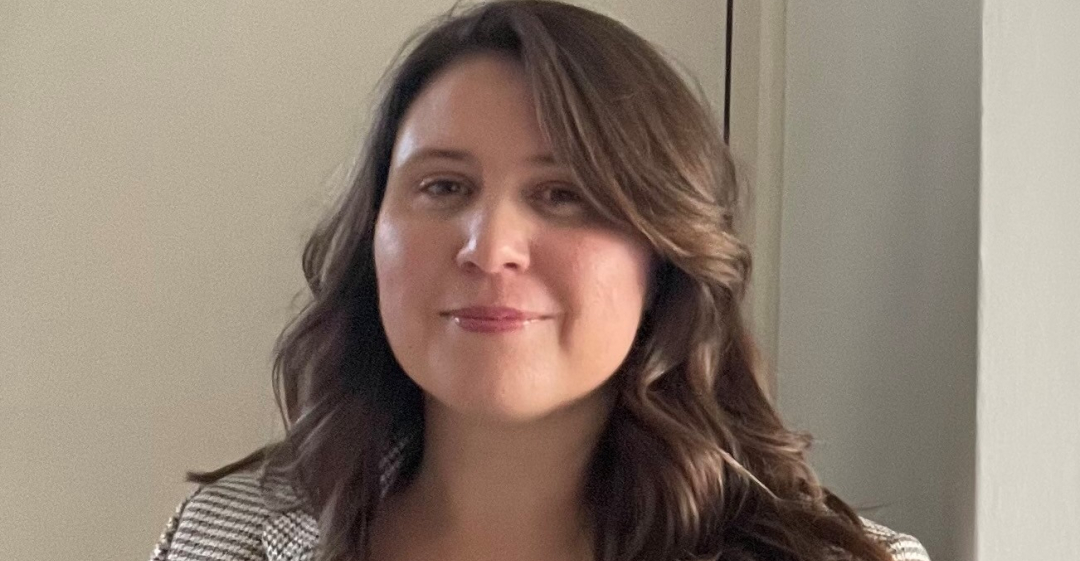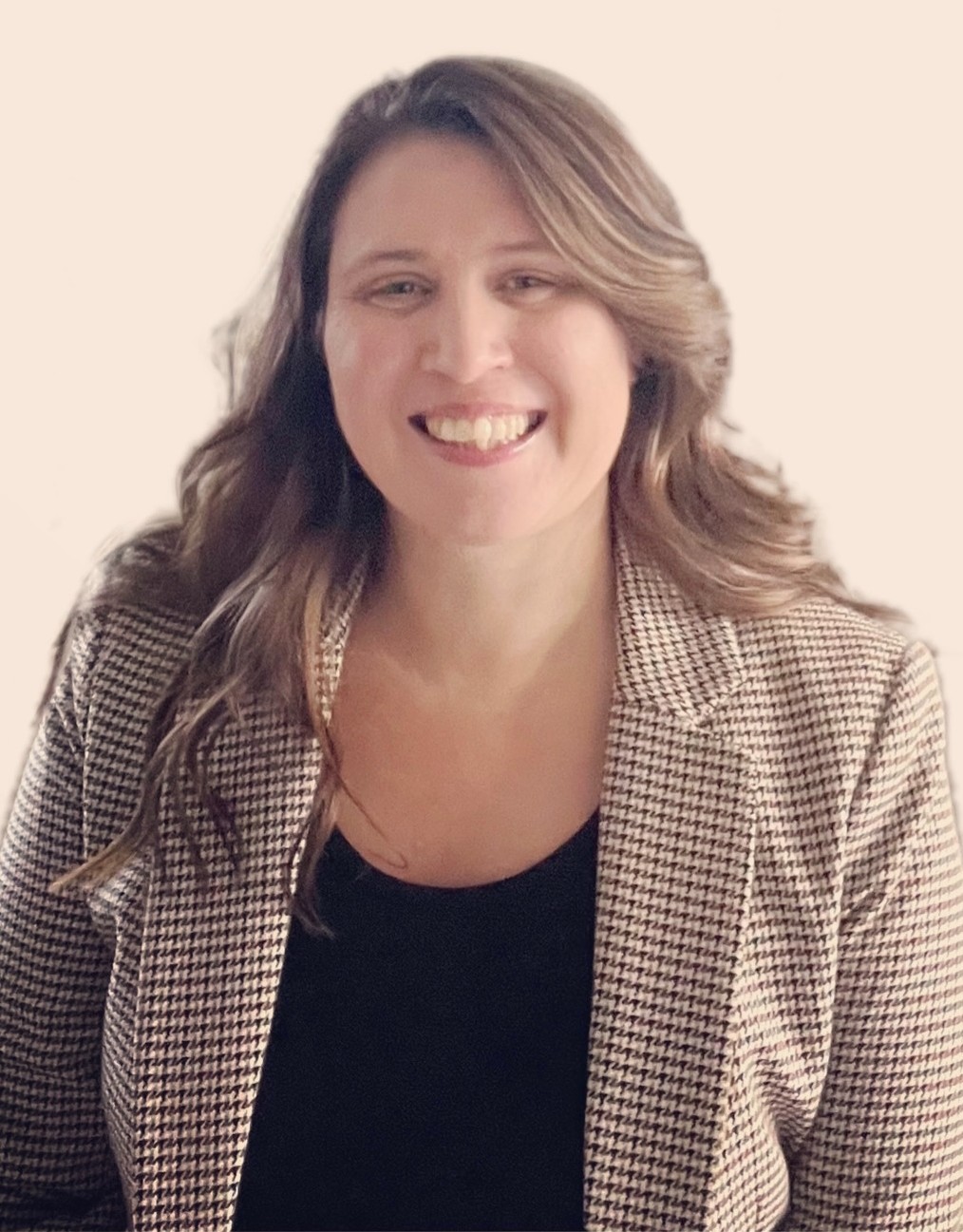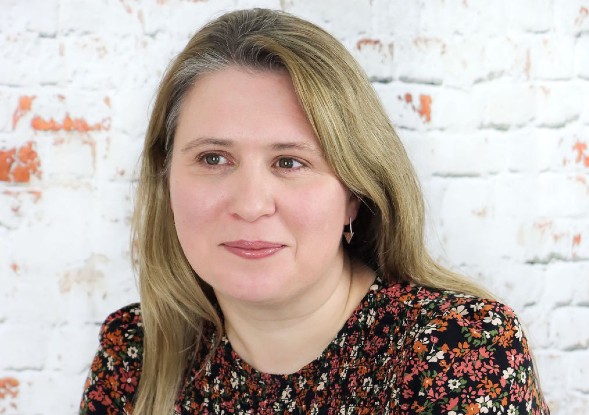“The desire for more meaningful work became increasingly hard to ignore.”

Newly Updated
What work were you doing previously?
For 18 years I worked in a senior management position within the construction industry.
I worked on high-pressure, multi-million sized projects, with tight deadlines and big risks to be managed. The site environment was challenging and male dominated; when I first started out there were very few women doing the same role as me.
What are you doing now?
I retrained and have become a hypnotherapist.
I now run my own practice seeing clients in person and on Zoom. I help people overcome emotional issues that are holding them back in life.
How did you feel in your work before you decided to make the change?
During the last five years of working in construction I was really unhappy.
I was commuting for an hour to an hour and a half, each morning and evening. The hours were long and the stress levels high. There were always fun times on site with the guys but there were also real low points and some very poor treatment at times.
Why did you change?
I reached a point where I was thinking the same thing on repeat, namely that I didn't want to have that lifestyle anymore (the long hours, pressure and long commute).
But I didn't know what to do instead so I felt stuck.
I knew I wanted to do something that felt more meaningful to me and that could have a real positive impact on other people. That desire grew in me over time and became increasingly hard to ignore.
When was the moment you decided to make the change?
At the end of the year before last, I sat down and wrote down in my diary my hopes for the year ahead.
The combination of my desire for change, a big birthday (my 40th) and the pandemic had really focused my mind.
I finally spoke to my family, telling them I wanted to quit my job. I decided I was going to need some time out to rest and reflect. So I set the wheels in motion and got a few practical things in order, before handing in my notice to set me up for a year out from work.
How did you choose your new career?
I had an inkling that I wanted to do something in the counselling / therapy field.
I started a short introductory counselling skills course, which generated more ideas for me.
Six weeks into my career break I was researching longer-term study options, going to open evenings. One of the options I explored was hypnotherapy.
Having had hypnotherapy myself years ago for a phobia, the idea resonated; I knew of its positive effects as it had made such a difference for me (my phobia was totally eradicated). I wanted to be able to do the same for others.
So six weeks into my year out I started a professional course to become a hypnotherapist.
Are you happy with the change?
Extremely.
I started my own practice and am having some amazing outcomes for my clients. The sense of satisfaction this gives me is amazing. Hypnotherapy is my 'thing'. I love it and when I hear myself talking about it, I realise that it brings out the best in me.
It has also been extremely powerful moving from being an employee to a self-employed business owner. The amount of freedom I have now in terms of how I spend my time, choosing the hours I work, has literally blown my mind.
What do you miss and what don't you miss?
I miss the consistent high salary and the sense of comfort that brings financially.
I also miss the fun I used to have with my colleagues – working for yourself is a different experience. But I have also started to build up a new network socially and professionally.
I categorically do not miss commuting by train every day! The constraints this would have on my time were huge. Going to work in the dark and coming home in the dark is not fun. My morning routines were manic and I barely got any time at home during the week.
I also don't miss the stress levels at all.
And finally, I don't miss the actual job role I was doing. Towards the end I really wasn't enjoying it and had stopped growing in it, which is a shame.
How did you go about making the shift?
I did a lot of research, attended webinars and about changing careers, including a couple through Careershifters.
I read books and looked online at other peoples stories of changing careers for inspiration.
Ultimately, giving myself permission to take some time out and not really do anything (my career break) enabled me to get clear on what I'd been thinking about but not progressing with for a long time.
How did you develop (or transfer) the skills you needed for your new role?
I took a formal training course to become a hypnotherapist.
However, there are some transferable skills from my old career that are helping me now I'm running my own business.
For example, I'm able to write business plans, produce spreadsheets to manage my finances, produce documents, and I'd previously done self-assessments for tax, so setting up as a sole trader was quite straightforward.
What didn't go well? What wrong turns did you take?
Five years ago I tried to take a career break, but I wasn't quite prepared and talked myself out of it through fear.
I know now that I wasn't quite ready, but also learned from that experience that I needed to be better prepared financially, and emotionally.
I would also say that I didn't really make a long-term plan (mainly because I needed the time out from work to think) – I'd only thought as far as going to retrain. I hadn't fully visualised what that would look like as an income / business.
So when I did decide to start my own practice, I had another learning curve.
How did you handle your finances to make your shift possible?
I'm fortunate that I have a financial adviser, and as a result of years of savings (and extra money saved during the pandemic) I was able to live off my investments for a short while.
I had to be realistic about my living costs and what I could / couldn't afford to do. And I had to be careful to budget in for things like my washing machine breaking when I least expected it.
What was the most difficult thing about changing?
Probably addressing my own mindset and habits.
I've done the same things in the same way for so many years; I've had to repeatedly remind myself that those constraints are not there any more.
So, for example, I'm slowly realising that the only factor influencing how I structure my day is me – there's no set train to catch or time to arrive at the office. I meet clients at times mutually agreed and when I complete a session I don't have to report back to a boss how it went.
Fully embracing and making the most of the freedom I have is a game changer, but it's also a real shift that has taken time to adjust to.
What help did you get? 
I spoke to trusted friends and family members for support as well as to people who had been through a similar process.
One particular friend who'd also left construction was really helpful.
I joined new networks, specifically one for female business owners, so that I could start to connect with others in my shoes.
Finally, I also drew on the support and expertise of people like my financial advisor to make the practical side of things work.
What resources would you recommend to others?
Marisa Peer's work on finding your purpose.
I watched a number of Ted Talks – tune in and see what words or concepts make your ears prick up.
If you're curious about something – a particular topic or field – just look into it a bit more. You'll rule a lot of stuff out but you'll also find what resonates and that's where you can really start to lock in on what’s calling you.
What have you learnt in the process?
I've learnt a lot about myself!
I was spending a lot of time doing things that I thought I 'should' or 'ought' to do, not what I actually wanted to do. In people pleasing I'd lost bit of my own self-worth.
As I've started working for myself I'm realising how capable I am, and actually that I'm quite resilient.
The most powerful thing I've learnt is to trust my instincts. Every single decision I've made that's been right has felt crystal clear; I'm tuning into that a lot, giving myself time to think and make decisions with a focus and clarity that I didn't have before.
What would you advise others to do in the same situation?
Take your time – these aren't overnight decisions.
Give yourself some time, whether that's having a break like I did, or an hour a week to think about what you want: anything you can do to focus on your wants / needs will help.
Prepare yourself for the opinions! When you make a big change to your career or life generally, everyone – and I mean everyone – will give you their opinion on it and tell you what you ought to do.
Chances are (because its human nature) they won't be able to separate their opinions from their own hang ups. So you have to be prepared for that and not let it in fully.
Ask yourself if the person giving you advice has a life or career you would want for yourself. If the answer is no, then the value of their opinion is nothing.
Be kind to yourself! It's hard learning new things, changing your life and making big decisions, so it's important to go gently on yourself and give yourself time.
We caught up with Elizabeth recently to see how her shift was working out, roughly two years on. Here's what she's been up to, and the biggest lessons she's learned.

What's changed for you in your career since we first published your story?
It's evolved and I’m continuing to experiment. Now I take more of a portfolio approach.
My priority is my hypnotherapy practice but I also have dditional aligned income sources. I found that the inconsistency of income and working alone was a bit out of balance so having additional work in a team using my academic background has bought a new aspect.
It’s helped me feel more secure too which makes all aspects of my life easier.
My hypnotherapy practice has become more focused, and I now niche in phobias and anxiety as these are my areas of expertise, where I’ve had amazing success stories with my clients.
How do you feel about your work now?
I genuinely enjoy it.
Helping people through hypnotherapy is the most rewarding job I’ve ever had. It feels much more settled now I think, as before I was always worrying and thinking that at some point I was going to have to “go back”.
Work is much gentler now, much more part of life rather than a dominating factor as it was before. The hours I worked and the long commute I had dominated everything.
Including my energy levels in the down time, things feel much calmer and more balanced. It’s totally refreshing.
What challenges have you come up against since making your shift, and how exactly have you dealt with them?
The mindset shift of moving from being an employee with a regular income, to being self employed with income varying month to month has been a challenge.
When “the fear” kicks in it can be quite stressful, so it’s important to acknowledge it and get refocused.
The other thing I’d say is that a big life change like this has impacted all areas of my life, not just work.
As the Brianna West quote goes, “your new life is going to cost you your old one”. My income has changed so in some ways my lifestyle has too.
There’s a lot less champagne now. That’s meant sadly I’ve lost a couple of friends along the way, people who perhaps didn’t understand or fully support the changes I was making, or why I needed to make them.
Of course, that’s not easy but makes me value those who have supported me and “got it” so much more.
How is the financial side of things panning out, and is this what you'd expected?
I must caveat this by saying that I had put myself in a strong position over many years prior to making the shift so doubtless that helps.
However, there have definitely been challenges. The change from a regular income can be startling. Like most people I didn’t expect my household fuel bills to rise as they did last year, combined with unexpected expenses (3 new tyres, a leaking roof, that sort of thing).
I’ve found things hard and have experienced worries around finances that perhaps previously I didn’t. However, budgeting, savings and additional income streams have bolstered me through.
I’ve also learnt that I really can budget quite well and manage this aspect of things.
What have you learned, since making your shift?
Probably that I’m more of a people person than I anticipated, and working solo can be a little lonely at times so I’ve done things to address that.
I’ve really learnt that careers are continuously evolving things, and if you can adopt a mindset of experimentation when making big shifts then it can make the process much more fun and take some of the pressure off.
Changing careers isn’t a one and done exercise. There will be iterations in the process.
Is there anything else you'd like to share?
I think it’s important to say I’ve not once regretted making the change!
People ask me if I miss my old life and I genuinely don’t. I can look back with more fondness now I have the emotional distance, but hand on heart I know I’m on the right track even on the hard days.
My life is so much better now. I’m happier, healthier and so much more content. No salary could replace that feeling.
What lessons could you take from Elizabeth's story to use in your own career change? Let us know in the comments below.



